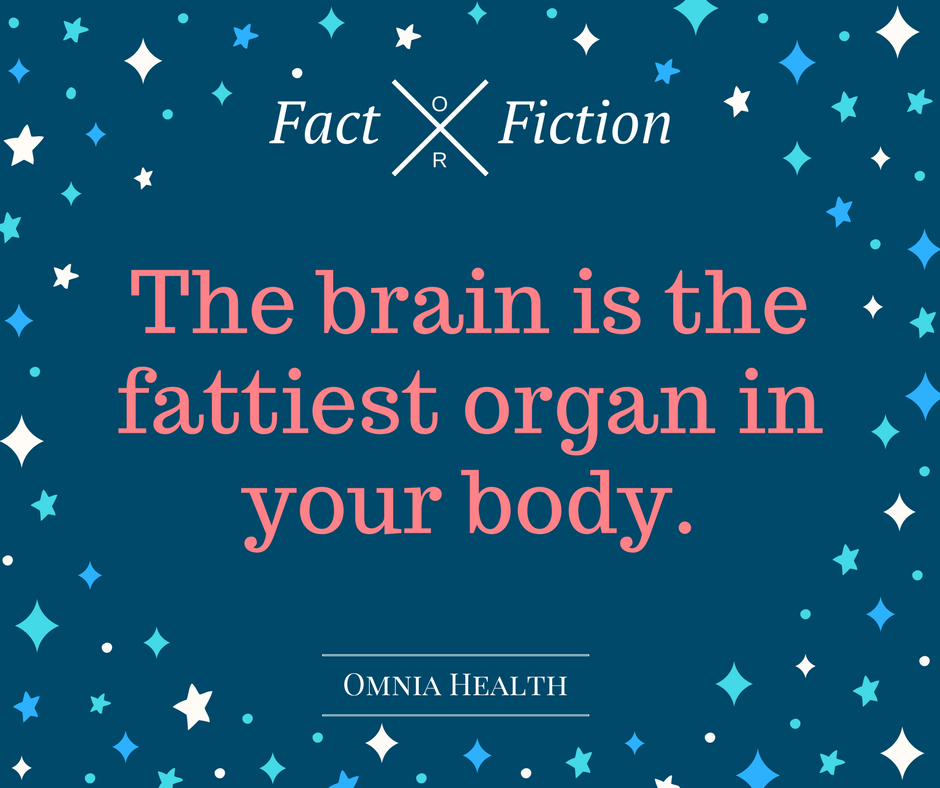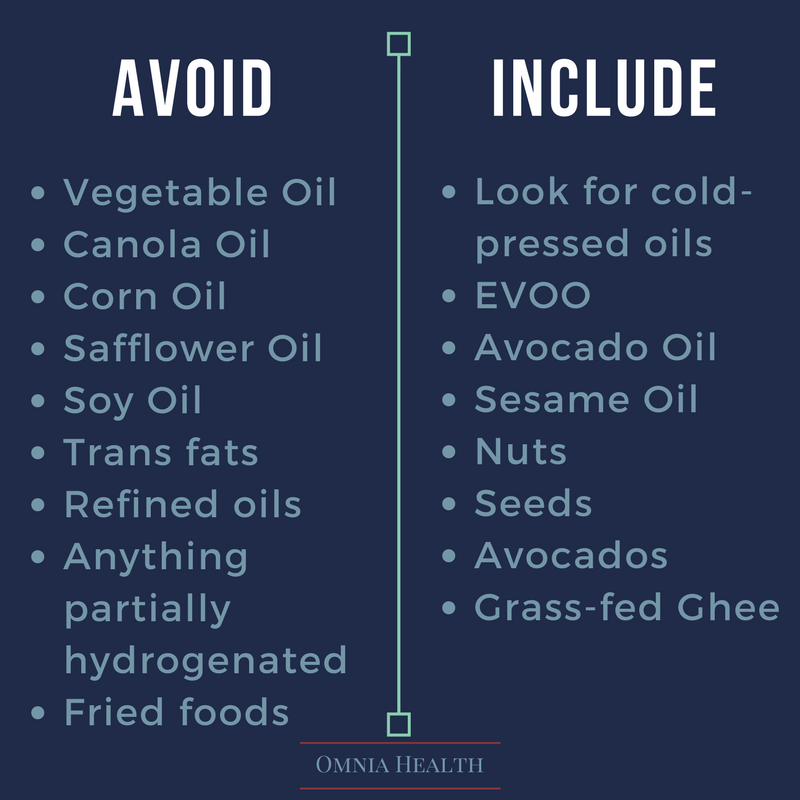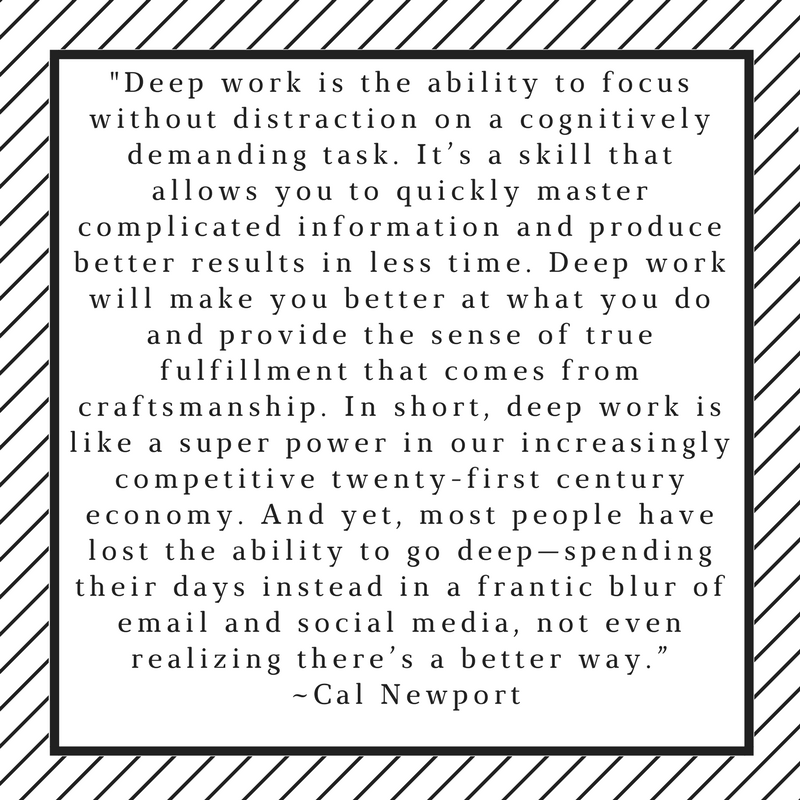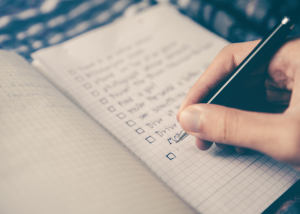Do you ever feel like you can’t focus more than 10 minutes at a time… OR… ever have those days (or every day) where:
- You can’t think straight
- You miss important deadlines
- You feel out-of-focus
- You’re willing your mind to work, but it just doesn’t cooperate?
- You feel like you’re walking around in a cloudy daze
- You feel like you’re running on a treadmill of anxiety and stress
We all occasionally have those days, but experiencing that frequently or every day is a sign something is out of balance.
To get you feeling sharp witted, stress-free, and with laser-sharp focus there are three main building blocks to keep the fog at bay:
- Nutrition
- Mind Body
- Focus
Nutrition
Nutrition is the cornerstone of many different aspects of health, brain health included. Merely addressing aspects of your nutrition can produce profound results.
Two main components of your nutrition to improve brain health on a superficial level (In our office, we take a deeper look at your individual nutritional needs) are:
- Sugar consumption
- Fat consumption
Your Brain on Sugar
Have you ever ate a large ice cream sundae and then 30 minutes later felt like taking a nap? Irritable? Or had ZERO focus?
If so, you have experienced first-hand why sugar is one of the biggest culprits in your diet that could be pausing mental fatigue, irritability, anxiety and stress (the list goes on and on!).
When you consume sugar, it sends signals to the brain and lights up the “reward” center causing a surge of feel-good hormones (like dopamine). If you activate this “reward” center too often, it sets off a chain of negative events including a loss of control and sugar cravings.
If you consume copious amounts of sugar, it also interferes with your body’s ability to regulate insulin. Insulin not only regulates blood sugar levels, but also affects brain cognition. In fact, researchers are now finding correlations to high-sugar diets and neurodegenerative diseases such as Alzheimer’s.
Want to reduce the impact sugar has on your brain health?
TIP -> The number one thing you can do is crowd sugar out with whole nourishing foods. This includes high quality sources of protein, fat, and veggies. This leaves less room for the sugar to sneak in and you’re focusing on adding in healthier options rather than restricting sugar which makes it a more sustainable lifestyle change.
Your Brain on Fat
Remember when the media tried to convince you that low-fat / high carb (aka sugar) diets were actually good for you? Well it turns out, fat is actually a good guy (well, most types of fat).

FACT -> The brain is the fattiest organ in your body. Since your brain fires on all cylinders ALL day long, it uses a lot of energy. The most sustainable form of energy for optimal brain health is healthy fats because they digest slower.
Want to harness all the amazing benefits of healthy fats?
TIP -> Use the chart below to include these healthy fats into your diet to gain clarity!

Mindbody
While nutrition often steals most of the spotlight, an under-looked aspect of an healthy brain is the MindBody connection. The mind and body are often thought as separate entities, but in reality they work together simultaneously. If one is out of balance the other is as well.
**Important Note**
The “mind” does not mean “brain”. Instead the brain is considered the vessel to experience various mental states including thoughts, emotions, beliefs, attitudes, and images. The “brain” can be improved by working on the “mind”.
Two things you can do to improve the MindBody connection are:
- Gratitude
- Meditation
Gratitude
When was the last time you paused to embrace a sense of gratitude?
Simply including a gratitude practice into your daily routine can have a profound impact on your life and brain.
In the field of positive psychology, gratitude is strongly correlated with greater happiness because it helps you feel more positive emotions, relish the good, improve your health, deal with stress and adversity, and build stronger relationships.
Research shows that individuals who showed more gratitude had increased levels of activity in the hypothalamus. What does this mean for you? Well, the hypothalamus is the command center for a variety of functions including eating, drinking, sleeping, metabolism and stress. Therefore, your hypothalamus will have better control regulating those functions.
Want to start incorporating gratitude into your life?
Gratitude is an easy habit to create because it is self-perpetuating in nature. The more you practice, the more adapted you are to think of things that you appreciate and the more psychological benefits you enjoy.
TIP -> One of the best places to start is to keep a gratitude journal.
- Keep a small notebook by your bedside table and do it at the same time every day.
- Start with 3 things that you are grateful for from the day. It could be something as big as cherishing your spouse or something as small as seeing a beautiful flower.
- When you write down the items, take a moment and really experience the feeling all over again of how you felt in that moment.
- Make sure to write down different things each day.

Meditation
I’m sure you’ve heard the term meditation thrown around a few times (or many — since it’s a hot topic right now). Unlike the war on fat in the media, meditation’s fame is rightly deserved.
So why is it so great? Meditation can help:
- Preserve the brain
- Reduce anxiety
- Stimulate new neural activity
- Improve concentration
- Improve attention
- Reduce stress
- Improve memory
Above are just a “few” of the things that makes meditation so great…so why not give it a try? What are you risking if you try it out for 5 minutes a day for a week? That’s the sum of one TV show, yet you gain so much more.
Want to try meditation but don’t know where to start?
TIP -> Try out the below tips to make meditation a part of your brain clarity regime:
- Start slow. The number of times (frequency) you do it is more important than the length of each session in the beginning.
- It can feel uncomfortable initially, but your mind AND body will thank you later!
- Try out a short guided meditation through an App or YouTube. (Headspace has a great free 10-day trial to help you learn how to meditate).
Focus
As much as you wish, you’re not a machine; your brain is not a machine. It’s not meant to be turned on all day, every day at max performance. It’s just not. Expecting your brain to focus like that is unrealistic and can contribute to brain fog and fatigue.
Two things you can work on to improve your limited focus:
- Increase deep work
- Decrease social media
Deep Work
According to Cal Newport, who termed the concept ‘deep work’:

Why is deep work so important to your brain health? Because the opposite, multitasking, deteriorates your deep work ‘muscle’ making your ability to focus, concentrate and remember things more difficult.
It also creates an unhealthy instant gratification feedback loop that makes us crave other things that instantly gratify us (think: the cookie from the break room or deciding to skip the gym for a Netflix binge).
Want to spend more time doing deep work?
TIP -> Two ways to train your deep work muscle are to:
- Schedule your day — schedule deep work blocks and shallow work (multitasking) blocks
- Take scheduled and structured breaks to allow your mind to fully relax (don’t scroll FB though! See why below).
Social Media
Have you ever caught yourself scrolling through Facebook, unable to take your eyes away? Then afterwards feeling like you were sucked into a time-warp…having no idea what time it is? Sometimes you mindlessly scroll through social media to relax, or when you feel tired, bored or lonely. Yet…do you feel better after it?
No surprise here, social media is addicting. When you’re constantly checking your Twitter, Facebook, Instagram every time you have a two minute break from your day, you aren’t letting your brain relax and take a break which decreases attention, focus, and concentration.
Want to start limiting or at least monitoring your social media usage?
TIP -> Schedule into your calendar when you check your social media updates and only at that time. Notice how you feel after your next long scroll session. Do you feel refreshed? Energized? Or do you feel like a zombie?
Implementation
So how do you implement all of this information? Where do you start?
Step 1: Identify where you are at. Use this article like a checklist. What are you already doing? What are you struggling with? What do you want to work on?
Step 2: Start at the top and work your way down. Sugar addict? Work on getting that under control first (if it seems like it’s out of control…come see us!).
Step 3: Incorporate only 1-2 things at a time. It’s better to start small and continue those actions than to start big and stop a few weeks later because you’re burned out.
Step 4: Share with us on our Facebook page your favorite tip.
What did you think of our post?
- Subscribe to our YouTube channel to get alerted when we release new videos!
- Leave a comment below to let us know if the information we provided was helpful. What was your favorite tip?
- Have a topic you’d like us to cover? Tell us in the comments!
- Share this post with others so they can benefit from our tips too!









